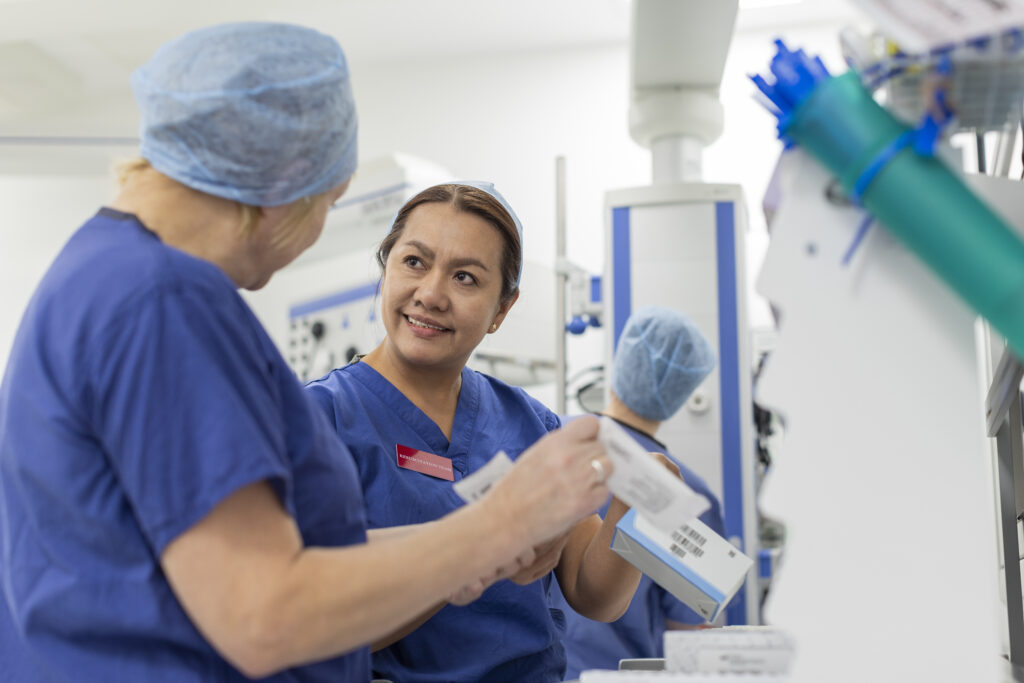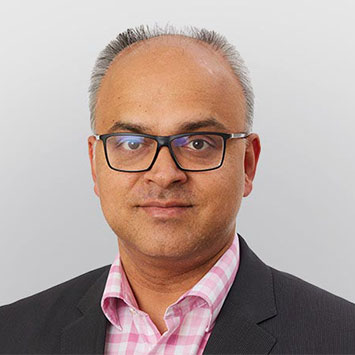What are polyps?
Polyps are small growths that can form on the lining of various organs, most commonly in the large intestine or rectum, known as colon polyps. These growths may seem benign, but they hold the potential to develop into something much more concerning, such as colorectal cancer. While most polyps do not cause symptoms and are often discovered incidentally during routine screenings, larger polyps can be symptomatic and may signal a need for further investigation.
Colon polyps, also referred to as colonic polyps or colorectal polyps, are particularly common, affecting about 20% of adults. Although most polyps are benign, the risk they pose cannot be ignored. Some types of colon polyps, especially adenomatous polyps, can transform into cancer over time, making early detection and removal critical. It is essential to consult with a colorectal surgeon for proper evaluation and management.
Understanding the nature and risks associated with these growths is the first step in effective prevention and treatment.
Types of Polyps
Polyps are generally categorised into two main types: neoplastic and non-neoplastic. Neoplastic polyps, which include adenomatous polyp (adenomas), have the potential to become cancerous, making them a significant concern. In fact, adenomatous polyps account for about 80% of all colon polyps, underscoring their prevalence and the importance of monitoring these growths carefully. Non-neoplastic polyps, on the other hand, generally do not turn into cancer but can still cause symptoms and require removal.
Among neoplastic polyps, adenomas are the most likely to develop into cancer. This transformation depends on the size and histological features of the polyp, with larger polyps posing a higher risk. Identifying and classifying polyps accurately through histological examination is essential for determining the appropriate treatment and monitoring strategy.
Symptoms of Polyps
One of the challenges of polyp detection is that many types of polyps are asymptomatic. This means individuals may not show any symptoms, making regular screenings crucial for early detection. However, when symptoms do appear, they can vary significantly depending on the location and size of the polyps.
Colon polyps can manifest through various symptoms that can be quite alarming. These include the presence of blood or mucus in the stool, noticeable changes in bowel habits, and unexplained weight loss.
Identifying these symptoms early is essential for managing potential colorectal issues. Routine screenings, such as colonoscopies, remain vital for detecting asymptomatic colon polyps before they pose a serious risk.
Causes and Risk Factors of Polyps
Knowing the causes and risk factors of polyps is key to effective prevention and management. Most polyps are typically benign, but some have the potential to become cancerous over time. Approximately 75% of colorectal cancer cases originate from adenomatous polyps, highlighting the importance of early detection and removal.
Age, lifestyle choices, and genetic predispositions can all elevate the risk of developing polyps. People aged 50 and older, overweight individuals, and smokers are at a higher risk of developing colon polyps. A personal or family history of colon polyps or colon cancer also increases the likelihood of new polyps forming.
Lifestyle changes, such as maintaining a healthy diet and regular physical activity, can significantly lower the risk of developing colon polyps.
Hospital fee guide price: £1,890*
More about pricingBefore treatment
First, you’ll want to schedule an appointment with one of our colorectal experts. During this consultation, you’ll discuss your symptoms in detail. If your doctor determines that a colonoscopy is appropriate for you, they will refer you for the procedure.
Diagnosing polyps early is crucial in preventing potential complications, including cancer. Common diagnostic methods include colonoscopy and CT colonography. During a colonoscopy, a flexible tube is inserted into your rectum to examine your entire colon, allowing for the detection and removal of polyps. Be sure to check here for the best ways to prepare for a colonoscopy procedure. CT colonography, also known as virtual colonoscopy, is a non-invasive imaging test that creates detailed images of your bowel to show any polyps.
Once polyps are detected, they are typically removed and sent to a lab for examination to assess their nature and potential for cancerous changes. This process is essential for determining the appropriate treatment and monitoring strategy, ensuring that any cancerous changes are addressed promptly.
During treatment
Polypectomy
A polypectomy is a common procedure you might undergo to remove bowel polyps during a colonoscopy. This process involves using a wire loop to either cut or burn off the polyp. The ability to remove polyps during a colonoscopy is a significant advantage, as it allows for immediate treatment without the need for additional procedures.
Early polyp removal is key to preventing colorectal cancer. This straightforward procedure can be safely performed during your routine screenings, making it an essential tool in cancer prevention.
Endoscopic Mucosal Resection
Endoscopic mucosal resection (EMR) is a minimally invasive procedure you might consider for removing larger polyps that are difficult to extract through standard methods. This technique involves injecting fluid under the polyp to lift it, making it easier and safer to remove with a snare that cuts the polyp while cauterising any blood vessels. EMR is particularly useful for removing precancerous polyps from your digestive tract without the need for external incisions.
While EMR can carry higher risks of complications like bleeding and perforation, particularly for larger polyps, it remains a valuable, less invasive option for treating polyps that are difficult to remove through simpler methods.
Surgery
Surgical intervention may be necessary for polyps that are too large or complex to be removed endoscopically. When you have many polyps or a polyp is very large, surgery might be required to excise the affected section of your bowel, which is then rejoined. In some cases, particularly those requiring emergency intervention, it may be necessary to create a temporary stoma.
Surgery is generally considered when other, less invasive methods are not sufficient to safely remove your polyps.
After treatment
Long-term monitoring after polyp removal is crucial for you to ensure that new polyps do not develop and to catch any potential cancerous changes early. If you’ve had polyps removed, you should undergo periodic colonoscopies to monitor for new growths.
Follow-Up Colonoscopy
If you have high-risk findings from an initial colonoscopy, you should have follow-up surveillance after three years. The three-year follow-up interval is crucial for those identified as high-risk, to allow for timely intervention.
Regular follow-ups aid in early detection of new polyps, ensuring timely removal before they become problematic. This proactive approach is crucial for you in preventing colorectal cancer and maintaining long-term colon health.
Genetic Testing
Genetic testing is crucial in assessing the long-term risk of developing polyps and colorectal cancer. Conditions like familial adenomatous polyposis and Lynch syndrome significantly increase your polyp risk. If you have a family history of polyps or colorectal cancer, you are strongly advised to undergo genetic testing.
Managing Recurrence
Managing the recurrence of polyps involves ongoing monitoring and lifestyle adjustments for you. Ongoing surveillance after polyp removal is crucial for your health management. Age is a significant factor in determining the frequency and necessity of your follow-up colonoscopies.
Regular check-ups and a proactive approach help ensure that any new growths are detected early and managed effectively, reducing your risk of developing colon cancer and colorectal cancer.
Appointment and Treatment Plan
Appointment
Based on your previous consultation with a doctor, an appointment will be arranged between you and your expert.
Consultation
During this appointment, you’ll go through your medical history, your symptoms, and together, you’ll decide whether further investigation, such as colonoscopy or CT colonography, is the best next step.
Preparation
If an endoscopic investigation is an option, then the specialist will provide you with instructions on how to best prepare for your procedure.
Treatment plan
Following the investigation, the doctor will provide you with results and together, you will agree on the further treatment plan.
Surgery
If surgery is an option, prior to going through the procedure, our team will ensure that you’re prepped once again. If everything is confirmed, you’ll undergo the procedure and then we’ll explain the aftercare instructions.
Aftercare
If necessary, you’ll stay in a ward for a while to ensure that you’re ready to go home after the procedure.
Follow-Up
You’ll come in to meet your doctor, discuss your results and agree on further steps.
Experts
We are proud to provide patients with access to a wide range of clinicians, chosen specifically for their knowledge and reputation in their area of expertise. Our experts align with our values: putting you at the centre of your care and educating you on your options at each step of the journey. We encourage you to learn more about our clinicians and how they can help you below. As always, please contact our patient services team if you require any additional information.
We offer 3 ways to pay for your treatment
We exist to take the stress out of private healthcare.
Our payment options are designed to offer you easy access to our treatments and services. You can choose to pay on the day, spread the cost, or use your private medical insurance.
Our patient services team will guide you through the process, providing clear costs and support throughout your course of treatment so you can focus on the thing that matters most – your health.
Whether you pay in advance, spread the cost, or use your private medical insurance, rest assured you will be receiving exceptional care 365 days a year.
Pay in Advance
Even if you do not have medical insurance, you can still get quick and comprehensive access to private medical care.
We provide transparent pricing from your initial consultation to the completion of your treatment so you know where your stand, every step of the way.
We accept all major debit and credit cards, as well as Apple Pay for UK residents. Please note that we do not accept cash or cheques.
Pay monthly
Paying for your treatment at OSD Healthcare doesn’t need to mean settling the full cost in one go.
Many of our treatments have a pay monthly option that allows you to spread the cost of your treatment over 12 months with no credit checks required.
A minimum spend of £300 does apply. We’ll take your first payment upfront and then arrange a direct debit for your monthly payments thereafter. It’s that simple.
Pay using PMI
We are recognised by all major health insurance companies and with our extensive range of services, there are lots of benefits to using your insurance with us. Our patient services team is here to answer any questions you may have about using your private health insurance with us.
Please bring along your policy details including your scheme details, membership or policy number, expiry date and confirmation of eligibility to claim (i.e. your authorisation number). If you do not have these details with you, we will require payment from you on the day. Patients are liable for any amounts not settled by their insurer.
Pricing
Hospital fee guide price: £1,890
Procedure price subject to bespoke quotation.
Additional consultant fee not included.
FAQs
Common symptoms of colon polyps are blood or mucus in the stool, changes in bowel habits, and unintended weight loss. It is important to consult a healthcare professional if these symptoms arise.
Not all polyps are cancerous; most are benign, but certain types, particularly adenomatous polyps, can potentially develop into cancer, highlighting the importance of early detection and removal.
It is generally advised for individuals at average risk to begin screenings for polyps at age 50. Those with a family history of polyps or colorectal cancer should consider starting earlier and having more frequent screenings. Regular screenings for polyps are essential for preventing cancer growth or spread. Follow-up colonoscopies are typically recommended every 3 to 5 years, depending on individual risk factors. The recommended interval for follow-up colonoscopies often depends on the number and type of polyps initially found. This proactive approach aids in early polyp detection and reduces the risk of colorectal cancer.
To effectively prevent polyps, it is essential to adopt a healthy diet high in fibre, quit smoking, limit alcohol consumption, and maintain a healthy weight through regular exercise. These lifestyle changes can significantly reduce your risk. A healthy diet is a crucial factor in preventing polyp formation. Diets high in red meat and processed foods are associated with a greater likelihood of polyp formation, while a diet rich in fibre can help reduce this risk. Incorporating more fruits and vegetables in your diet can significantly lower the risk of developing polyps and maintain colon health.
Making these dietary changes can be a powerful step towards preventing cancer and promoting overall well-being.
Genetic testing plays a crucial role in assessing the risk of polyp development and colorectal cancer, especially for those with a family history. This insight informs preventive strategies and follow-up care to mitigate risks effectively.





